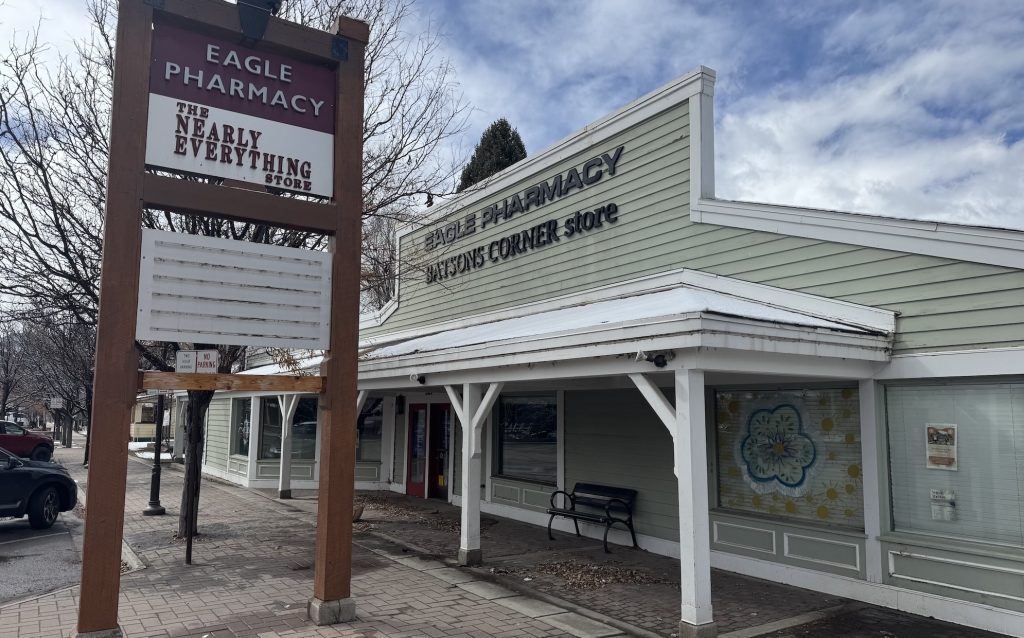Colorado bill aimed at preventing rural pharmacy closures heads to governor’s desk
Pharmacists say they’re at risk of shuttering due to seeing below-market reimbursements for the prescription drugs they buy

Nate Peterson/Vail Daily
A bill seeking to give rural Colorado pharmacies fairer reimbursement rates for prescription drug costs cleared the statehouse last week and now heads to Gov. Jared Polis’ desk.
Lawmakers say House Bill 1222 aims to keep independent pharmacies’ doors open after hearing from store owners that they’ve come under financial stress due to their reliance on pharmacy benefit managers, the middlemen between drug manufacturers and pharmacies.
These companies, meant to negotiate lower drug rates with suppliers, have grown to control about 80% of the prescription drug market in the United States at a time when independent pharmacies are shuttering.
A 2024 Federal Trade Commission report claims that benefit managers “may be using their market power across the distribution chain to set reimbursement rates at untenably low levels for independent pharmacies.” It comes as another study by the University of California Berkeley School of Public Health and the University of Southern California found nearly one in three pharmacies have closed nationally since 2010.
David Bonfiglio, who owns and runs an Oak Creek pharmacy in rural Routt County, told lawmakers during a March bill hearing that he may be among the next pharmacies to close.

Support Local Journalism
“Approximately 35% of prescriptions I fill are reimbursed below costs,” Bonfiglio said in his testimony before the House Health and Human Services Committee. “This situation we are in is unsustainable. … If allowed to continue, the personal drive to care for our patients may finally be overtaken by the need to cut our losses and close our doors.”
House Bill 1222 requires benefit managers to reimburse rural independent pharmacies at rates equal to or greater than a prescription drug’s national average cost. That reimbursement would be in addition to the dispensing fee for filling a prescription.
“It will be very impactful for a lot of our rural and independent pharmacies who are struggling right now,” said Sen. Dylan Roberts, D-Frisco, a lead sponsor of the bill.
Roberts said losing a pharmacy in a small town is “catastrophic, because it’s not just where you go to get your prescription drugs, but you get other health supplies, it’s where you can receive immunizations and other treatments.”
The bill also mandates that benefit companies give pharmacy owners a 30-day notice of their right to appeal an audit that may lead to more than $1,000 being recouped from their store. It would prevent companies from banning pharmacies from working with a third-party courier to deliver prescription drugs to a patient.
Health care industry representatives pushed back on the bill, which they said would have too immediate an impact that could upend current contracts. They also called for a tighter definition of a rural independent pharmacy to ensure large corporations wouldn’t take advantage of the lower reimbursement rates.
Lawmakers passed a series of amendments that included a narrower definition of rural pharmacies and a January 2026 implementation date for when the new reimbursement rates would kick in.
The bill saw near-full support from the legislature, passing the House in a 60-3 vote and clearing the Senate unanimously.
It is sponsored by Roberts, Sen. Cleave Simpson, R-Alamosa, and Reps. Meghan Lukens, D-Steamboat Springs, and Ty Winter, R-Trinidad.
A long-dormant US immigration registration law is getting stricter enforcement. Here’s who Colorado attorneys say it impacts
A decades-old law requiring immigrants to register with the U.S. federal government is suddenly getting stricter enforcement, and Coloradans have questions about who it impacts and what it means for their travel.











